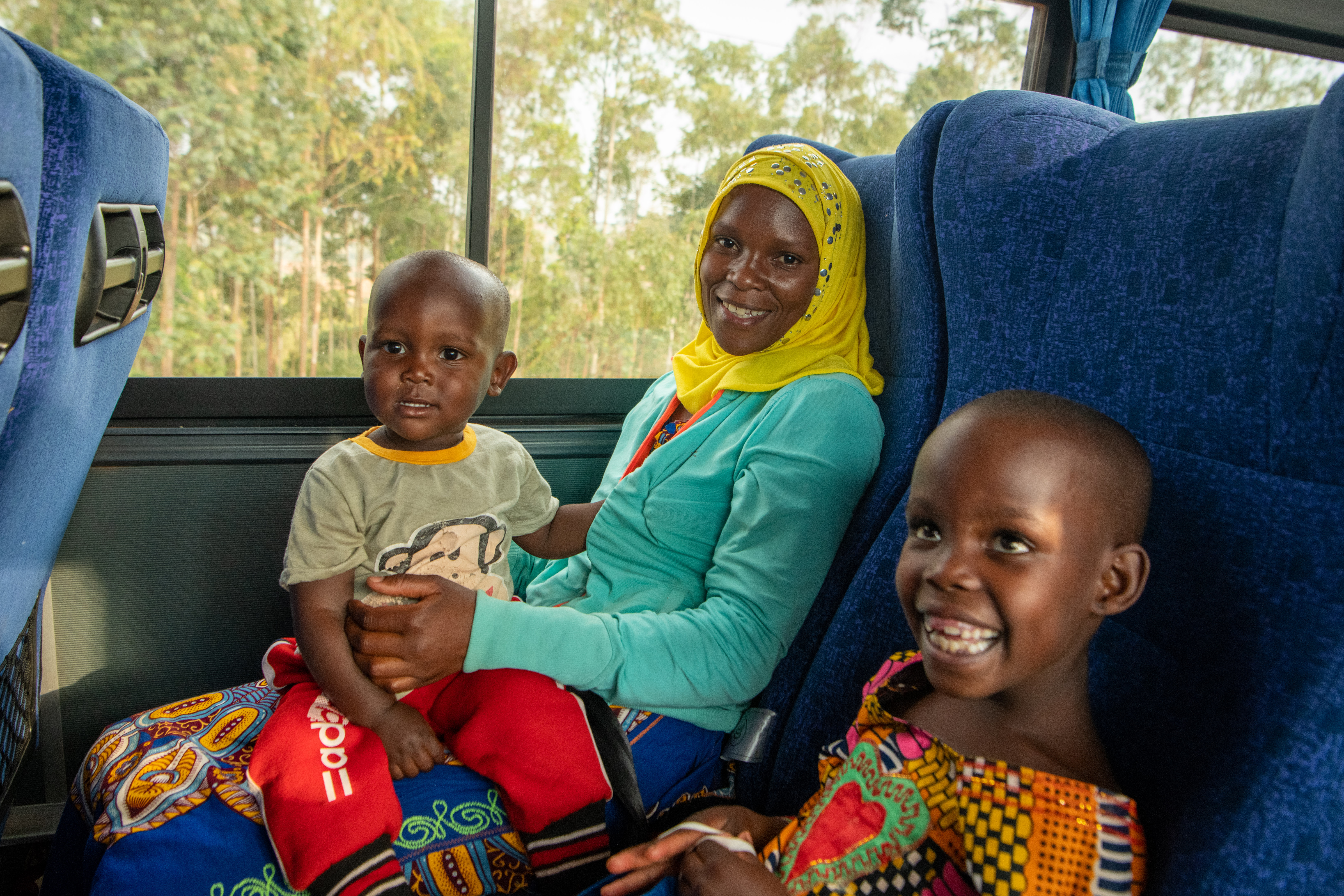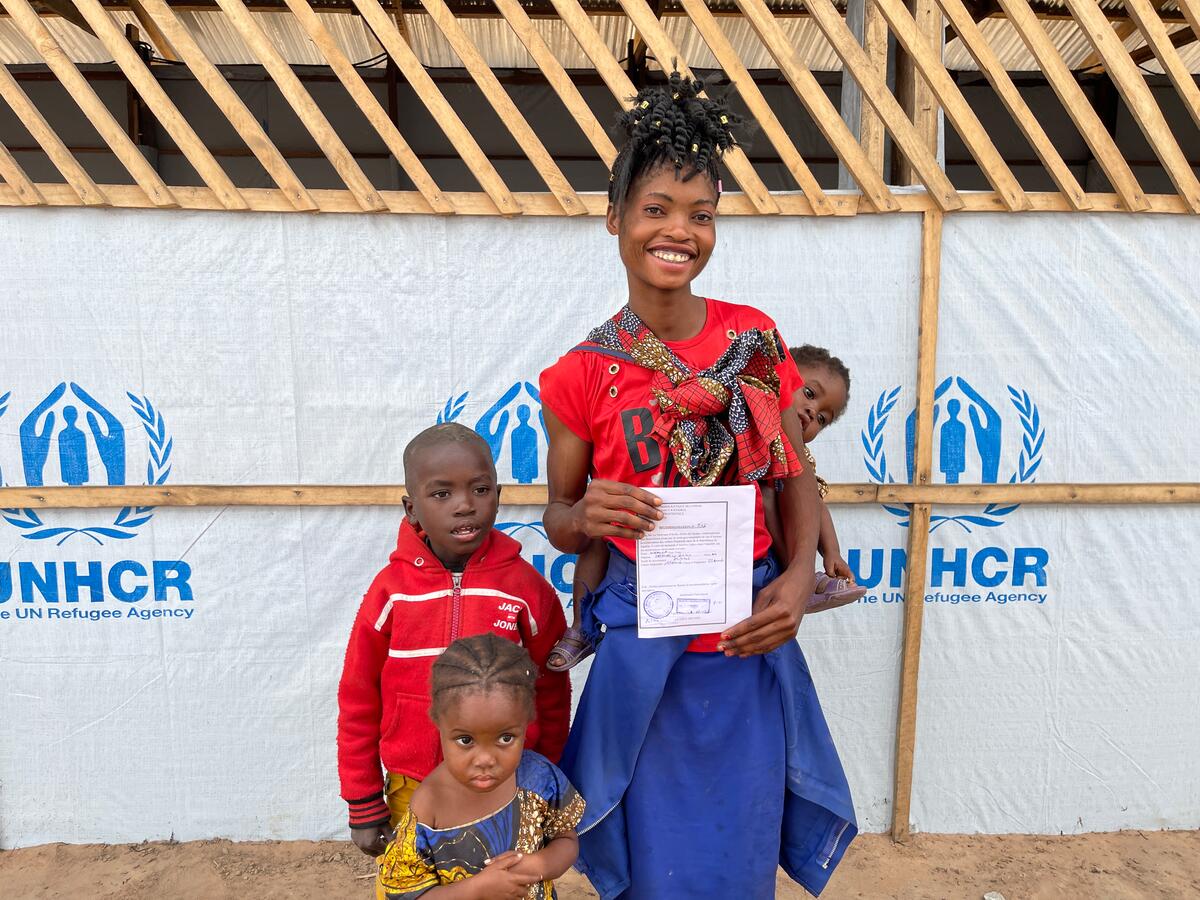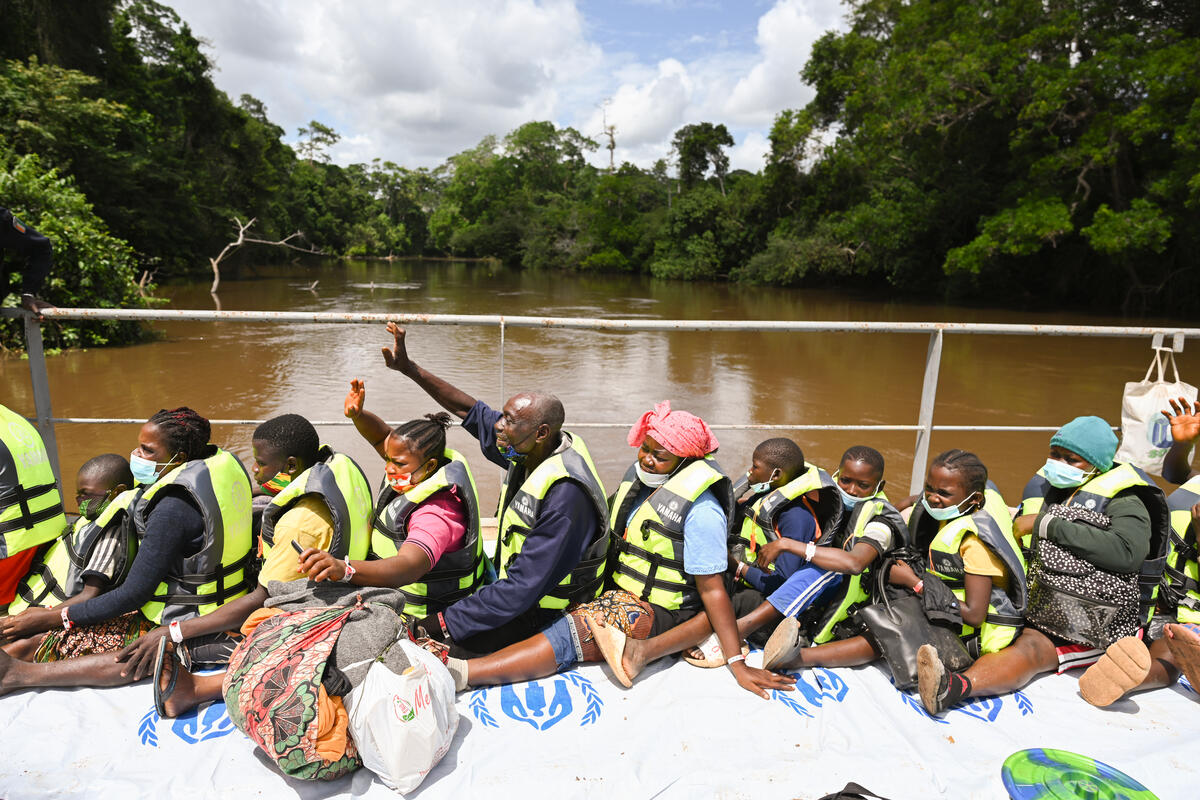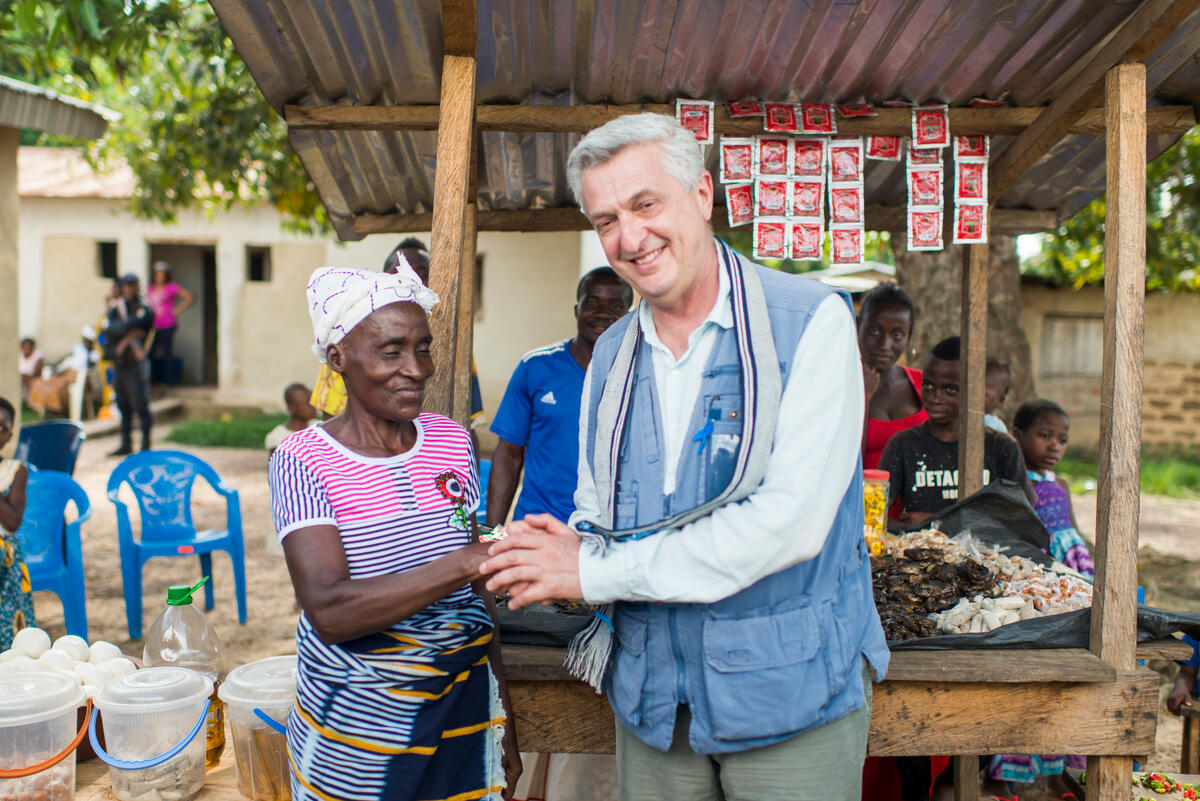New hope in the heart of Katanga province
New hope in the heart of Katanga province
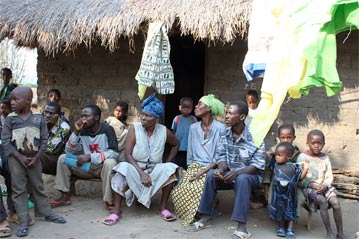
FUBE, Democratic Republic of the Congo, September 26 (UNHCR) - A brand new settlement is emerging in the hills of Moba, a district in southern Democratic Republic of the Congo (DRC) recovering from years of conflict and human flight.
Growing numbers of refugees are heading to Fube as relative peace returns to the lush and fertile district of Katanga province. But what's really special about this village is that it's all being created by the returnees, who have been using skills learned in Zambian refugee camps to construct homes and a school and to establish basic services - rather than wait for outside help.
"This area has, unfortunately, no basic infrastructure. The returnees are trying to improve their socioeconomic conditions through various local initiatives," noted Philippe Creppy, head of the UNHCR office in the town of Moba, which lies 160 kilometres from Fube on Lake Tanganyika.
The refugees, most of whom were from the Fube area, began thinking about their model village while still in northern Zambia's Kala and Mwange refugee camps. They dubbed the project, "New Hope," and began making it a reality after UNHCR began its assisted voluntary repatriation programme from Zambia to Katanga by ship and road in May 2007.
Some 1,400 Katangan refugees have since settled in Fube, including people who fled to other parts of the province to escape fighting between government forces and the Mai Mai militia, which displaced some 200,000 people in 2005 and 2006. Up to 8,000 more refugees could follow them from Kala and Mwange, bringing the skills they picked up in the camps with the help of UNHCR and its partners.
With peace returning to the area, the repatriation of growing numbers of refugees is leading to a rise in humanitarian needs and putting a strain on the battered infrastructure. UNHCR and its partners provide returnees with non-food items and a food package to get them get started. They have also been helping to restore basic services, but an enormous amount remains to be done.
That's why the inhabitants of Fube decided to take things into their own hands. Returnee Jean-Claude explained their motivation. "We thank UNHCR for the assistance kit they gave us on arrival, but it does not last forever. So we have to build our future ourselves," he said, adding: "Now our children can go to school without having to walk for several kilometres every day."
Robert, another returnee, learnt carpentry skills in Zambia. "The skills I learnt in the camp helped me to build my house and to teach others how to build theirs," he said. "Now we have a very nice village."
The refugees chose Fube mainly due to the plentiful arable land and because of the rich soil, which made it ideal for growing crops such as maize, beans and potatoes. They transport their produce to local markets by bicycle, earning money to feed their families and fund further construction.
But the residents of Fube also trade clothes and household goods with people in neighbouring villages to build up their construction funds. They plan to sink wells and build more schools, health centres, a church and even a cemetery. Each family gets a one-acre plot of land on which to build a house and cultivate fruit and vegetables.
However, the village of Fube is an exception in Katanga. For most returnees, the humanitarian situation remains precarious in Moba district even though aid organizations are working there. The provision of education, health care, food and security remain patchy for most people, while corruption and rights abuses are also an issue.
UNHCR's Moba office, which opened in June 2006, is involved in both the repatriation to Katanga of refugees from neighbouring countries and - working with the DRC government and other partners - in easing their reintegration, particularly in the fields of education and health care. The refugee agency, as head of the UN cluster group on protection in DRC, also monitors human rights violations, including rape cases.
By Francesca Fontanini in Fube, Democratic Republic of the Congo



